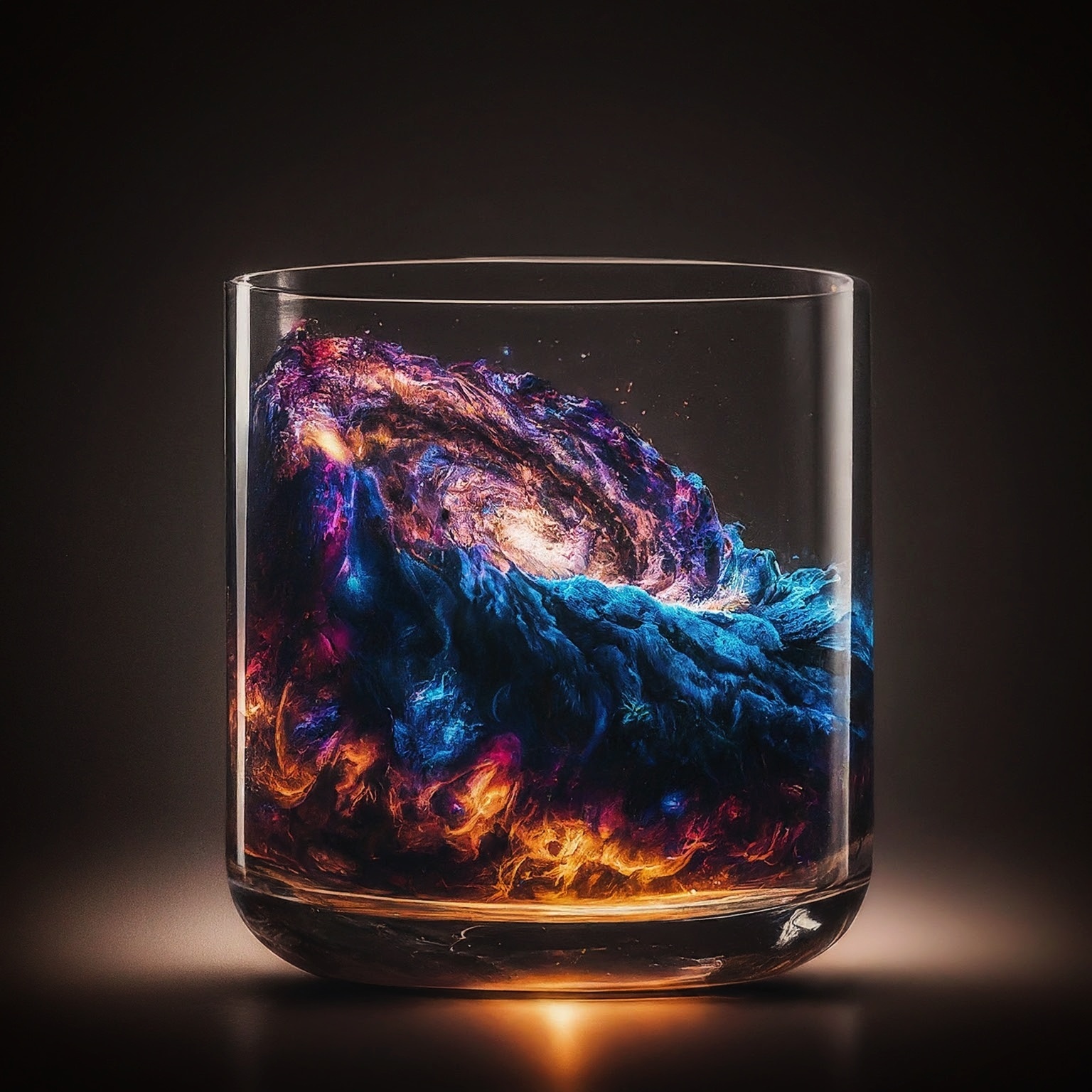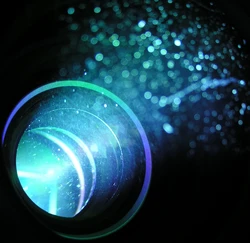I don’t watch horror slasher/spatter films because it’s never really interested me, but I found the Weapons trailer intriguing. The way all those kids ran away from their homes in the middle of the night. There was some pretty great cinematography and choreography in this film. I was there mainly the mystery solving and fantastical elements.
Unfortunately, the supernatural element wasn’t explained. It borrowed from familiar witchcraft tropes, but didn’t go anywhere. So many questions. Then it became… gruesome. Exceedingly so. (And yes, I know it was more mild than other films.)
Anyway. I’m just lost. What draws people to these kinds of gruesome films? If it’s something you love, what excites you about it? I feel as though great stories can be told really well without being this explicit. But perhaps great storytelling isn’t what people are looking for in horror films?
Perhaps it is the fear and suspense it brings out of you? Or maybe the squeamishness of not being able to look at the screen at times? Maybe some people look forward to the gore, which adds value the more gruesome it is? 😬
I feel like I am not getting something. I love fantasy. I love stories. I feel like there was a lot of great potential in this film for storytelling, but it never came to fruition and was kind of ruined by focusing on the wrong things. And that’s probably because I don’t understand what makes a good horror film good in the first place?
Thoughts?
Update: Some comments helped me refine what it was that bothers me. I had to look it up and the Wikipedia article helped a lot by breaking horror down into subgenres. It’s “slashers” that I don’t understand, but particularly “splatter” films. When I look at lists, it turns out that I enjoy a lot of “horror” without realizing it’s classified as horror. But gorey, body mutilation… that is the form of horror that I struggle to understand the appeal of.
Weapons employs mutilation at the end and I was wondering why I needed to see this. The filmmakers added it because they wanted me to experience it. They thought it added to their film, but my experience was the opposite. I thought the story was doing great on its own and then… ugh… wtf… who wants to see this? 😅
So this is what I was really asking: For those that enjoy and seek out gorey mutilation, what is it that attracts you to that?
One of many reasons I like horror is that because it’s been seen as less serious than other more mainstream genres, it was an area where women and queer and other underrepresented voices could tell their stories. They can write social commentary into horror that would be too subversive to be accepted elsewhere.
I also don’t care for the really grotesque stuff. I’m not the person to explain the appeal of those types of horror.
Queer or minority representation and story telling – I never expected to hear that.
I admit that I haven’t watched a whole lot of pure horror. Older well-known ones, sure. Newer ones that had an interesting story element, sure. Nothing jumps out of memory for giving space for such voices.
I’d be curious to hear about a few examples.
It’s books too, going back further than movies, sci-fi and horror was where “other” voices had a better chance of breaking jn. Mary Shelley and Frankenstein or The Modern Prometheus. There are stories about women being outside the mainstream, witches and vampires, as code for lesbians and women who simply didn’t want to live the married life giving birth and subject to husband’s financial controls. A Girl Walks Home Alone at Night is fresh on mind because I watched it a month ago or so. And The Gilda Tales, a book with lots to say about slavery and feminism and vampires.
Some of the most terrible body horror is about giving birth or about having your physical appearance constantly judged by society. The Substance with Demi Moore and Margaret Qualley.
To other modern, commercial stuff like Get Out by Jordan Peele.
Jennifer’s Body was poorly advertised by the studio, but about a raped/abused women using the horrors inflicted on her, possessing her and using it to get back at her rapists. Even now the IMBD description talks about how her friend has to save her from possession when really her friend gets “possessed” too, aka radicalized and no longer takes shit from abusive men.
The term “the male gaze” was coined by a black, queer filmmaker, she made a short movie called The Mark of Lilith way back in the day. Not the easiest to find but it’s inspired a lot of work that came after her.
To parody works like Slumber Party Massacre flipping misogynist tropes on their heads.
Thank you for this.
One thing I’ve been reminded of in this thread is how diverse horror is and how I was unintentionally limiting it. I was effectively equating horror to slashers and splatter films, which I’ll never understand the appeal of. But the reality is that I have partaken in quite a bit of horror without ever really thinking of it as horror first. Genres tend to bleed into each other.
Weapons was pretty much a modern fairy tale, and for that reason I accepted the vagueness. Its internal rules were consistent and used creatively.
Plus my favorite type of horror is tension (without jump scares!), and most of the movie was pretty tense!
When I was 11, I was a very scaredy and timid kid. I was afraid of the dark and the idea of ghosts and demons. One night, I could not sleep; It was a very windy night and the noises of the trees and the shadows projected into my bedroom had me petrified. I was imagining something like a killer or a devil lurking in the shadows; I don’t know why I was so afraid of those particular ideas, maybe the religious ideas of the community where I lived.
I started thinking of an experiment in my mind. What if I befriended the devil? What if I became Satan’s best pal and instead of cowering in my sheets I would be happy that my friend was paying a visit. That idea evolved into imagining scenarios where the devil defended me from my bullies or protected me from the dangers of the night. I fell asleep.
I feel all horror is a very similar fantasy to that. Instead of turning away from the things that you are scared of; you embrace them, or try to expose yourself to them with one eye open and one closed. It’s roller coaster-ish; a thrill to Spice up your experience; Like putting hot sauce into your food. Horror media can be a controlled exploration of our evolutionary fear reactions in a controlled environment, but also an exploration of taboos or limit experiences. I also feel that horror is very similar to comedy in the sense that it’s not always about the plot itself, but the visceral emotions and reactions it causes.
To your example Weapons: It is a movie made by a director who is also a comedian. the whole movie is an extended setup to a punchline that is both horrifying and comedic. The tropes of the story are kind of cliché but I think the novelty comes from the way it successfully weaves the horrifying and the absurd. There is an air of Monty python all across the movie but even the laughs are played with this muted seriousness.
It’s also a very unpretentious spooky tale. It doesn’t pretend there is a large moral message or a political dilemma. It feels a little retro at how straightforward it is. a “Visceral reactions” movie. I also feel that the fact that it doesn’t need to explain itself helps the overall atmosphere. The movie doesn’t need to wear it’s lore like underwear over it’s pants. It trusts the audience to imagine and feel the blanks. One of my major frustrations with most media today is that writers feel the need to explain everything. They need to tell audience what to think and feel about everything. Character monologues explaining their feelings, exposition dumps about what should be obvious on the screen. I find it refreshing when a piece of media leaves some interesting blanks for me to fill.
So I guess in conclusion I like horror because when I am afraid or nervous, I like to imagine I am riding a big scary roller coaster with my buddy the devil by my side. thinking like that made me less timid, less afraid. It helped me navigate the complex social situations of college as a young man with ADHD. And it helps me talk to people I initially felt intimidated by as an adult. Because I give myself a chance to experience my own fear and doubt. Or some pop psychology shit like that.
I appreciate this. It gave me something to think about. The reactive and emotional element makes sense.
It also reminded me how much I’ve changed the last several years. I’ve been through… things. And as a result, I experience life very differently now. The things most people are afraid of don’t seem to affect me the same way. There was a time, certainly, but not anymore.
The only strong emotion I felt in this film was due to the gruesomeness. I’ve seen things. I’ve been in terrible situations. i choose to avert my eyes at parts because it was too real. There are genuine grizzly monsters out there and I wasn’t interested in more.
Hmm.
I can relate to this.
I liked the dark continuity of horror movies, how characters and themes carried forward in various series, but my favorite that I kept going back to was Nightmare on Elm Street 3: The Dream Warriors.
The kids fight back, and though they get defeated quickly, they do temporarily defeat Freddy. The idea that they could fight back was fascinating and helpful as a kid.
I like some body horror, but I’m really picky about it. I have zero desire to watch one human torture another. But something natural (or even supernatural) like a disease, an accident, or damage from a non-human life form, allows you to experience the horror of the frailty of the human body.
We’re all going to die. We will all experience varying degrees of the degradation of our bodies. That’s scary. When we imagine a scenario, our brains change like they’ve actually experieced that scenario. That can make it easier to endure when they encounter a similar scenario in real life.
I haven’t seen Weapons, but I do like a horror movie.
Horror is a very diverse genre. Pretty much any story could become a horror story by adding a little twist to it. You’ve got stories that lean into the tropes, stories that actively subvert them, and stories that go their own way.
As far as genres and audiences go, horror is really divisive. People who like it like it, and the people who don’t really do not. In the movie industry, it’s considered high risk, so you typically won’t see horror movies as a major budget summer blockbuster. Traditionally, you’re looking at low budget movies taking chances on new actors / directors / writers. In horror, studios would prefer not to invest in one major picture, but instead diversify into ten pictures and hope one of them is a hit.
Because of studios’ aversion to horror, it has a thriving indie scene. You’re way more likely to see underrepresented voices in horror here, particularly women and queer directors. With limited studio involvement, these stories feel far more personal. And in an industry that relies on thrills, a personal story from an underrepresented voice is more novel. It’ll be more authentic and connect with certain audiences, while other audiences might find it more subversive and unsettling.
It sounds like you were a bit disappointed that Weapons never fully explained itself. While it can be sometimes frustrating, this is a common technique in horror fiction. Stephen King wrote about this extensively in his horror how-to Danse Macabre, but the conventional wisdom is that if you leave certain elements blank, the audience will fill in the blanks themselves and they’ll be scarier than whatever the author originally had in mind. Particularly in arthouse/auteur cinema and thrillers, these blanks also leave room for the audience to make their own interpretations about the meaning of a film - and finding meaning is something that I’m particularly drawn to in film.
I think at their root, people watch horror movies either because they want to be scared or they want to be comforted. These motivations are at odds with each other, and yet, they make sense to me.
For the people who want to be scared, the movie provides a build-up and subsequent release of tension. The tension comes with adrenaline, anticipation, and focus, and the release comes with thrills, relief, and probably give you something to laugh or at least talk about later. It’s a lot like riding a roller coaster. Plus if you’re focused on the horror of the film in front of you, it can provide escapism from the all too real horror show of life.
Then there’s the people who want to be comforted by these movies, and I’m in this camp now. If you’ve seen a thousand horror movies, you probably know how the next one is going to go. You might still jump at the scares, but you know when they’re coming. You may not guess every twist, but you know where they belong. Even the subversive movies become formulaic because the director needs to know the audience’s expectations in order to surprise them. Watching a new movie you can see the influence of the rest of the genre, and if you choose an old familiar movie you can find new details while still enjoying the expected story beats.
I don’t like every horror movie. I know what I like, but the trouble is you don’t always know going into a movie what to expect. Not knowing what to expect is arguably a good thing when you’re selling fear, after all the fear of the unknown is one of the more primal fears. Still, I think more robust content warnings would be useful.
For instance, you mention gruesomeness as being a particular turn-off for you. When you’re deciding to watch a movie, you’ll probably see that it has a letter rating and some kind of content advisory. I’m most familiar with the Motion Picture Association (MPA) ratings, like PG-13 or R, and they’ll include a descriptor of why a movie received a particular rating. The problem for me is that byline often falls short of describing the tone. You might read “Intense blood and gore,” but whether you’re watching Friday the 13th, Tucker and Dale vs Evil, Saw, or The Fly (1983), that gore is probably going to give a different impression because those movies all have radically different tones from each other. In a similar vein, I think of Event Horizon, which is relatively tame apart from something like thirty seconds of psychosexual torture porn that would make De Sade blush.
My personal bugbear are jumpscares, and I wish they were called out in the ratings. They’re a very common complaint among horror fans. They do serve a purpose, but are largely cheap and overused. The “jump” is really an involuntary reaction, and it will occur whether you expect it or not. I suspect they’re only as popular as they are because studios do test screenings where they film audience reactions. A jump is a very visible reaction, but it’s a poor indicator of what the audience is thinking. I imagine that the people reviewing the reactions read them as “very scary film,” but my reaction often has me feeling vaguely insulted.
I also like horror games, and jumpscares are overused there too. You can’t escape it.
Goodness. It was hard to find the rating for this film. I finally found a site that listed it from the US American MPA. This film is “Rated R for strong bloody violence and grisly images”. It will take me some time to get a feel for how a description like this actually compares to the movie. Time to squish my brain. I want to recall various violent and gory films that I’ve seen and then see how they compare to this description.
Update. This is actually much more helpful than I realized. I kind of wish the services I use more plainly listed ratings like these.
Thanks for this. It was insightful.
Your post helped remind me how diverse horror really is. I look it up and the Wikipedia article helped a lot by breaking horror down into subgenres. It’s “slashers” that I don’t understand, but particularly “splatter” films. When I look at lists, it turns out that I enjoy a lot of “horror” without realizing it’s classified as horror. But gorey, body mutilation… that is the form of horror that I struggle to understand the appeal.
Weapons employs mutilation at the end and I was wondering why I needed to see this. The filmmakers added because they wanted me to experience it. They thought it added to their film, but my experience was the opposite. I thought the story was doing great on its own and then… ugh… wtf… who wants to see this?
So for those that enjoy and seek out gorey mutilation, what is it that attracts you to that?
And yes, I also wanted to know more about the story and lore of Weapons. That little tree. The magic. It was all interesting, but I realize now that none of that was really what the film was about. It was just a mechanism enabling what they were trying to accomplish elsewhere.
And also yes, I completely get your sentiment when it comes to jump scares.
Ooh… And on ratings… I realize now how I don’t really pay attention to them like I once did with the advent of streaming. I need to be more intentional about that. It was easier when it was written clearly on a physical box at the movie store.
IMO, there are two types of horror films: Terror and Slashers.
Terror depends on building tension through a story, cinematography & acting- few jump scares and focus on the creature (if there is one) but enough to keep the story moving. Jaws, Aliens, Hereditary, Weapons.Slashers are just teenagers in a camp being chased by the bad guy, tripping over everything along the way. They depend on blood, gore and bad decisions. Nightmare on elm street, Halloween, Jason & Scream.
There are outliers that cross both lines, of course, The Evil Dead was a great, campy slasher. The Crazies was a good zombie slasher with an interesting story. Event Horizon if you account for the Warhammer 40k theory. Momma was a nightmare fueled fever dream of a movie and also deserves a mention.
I guess, to answer your original question is that I like these movies mainly for the reason I like other movies: an interesting story that isn’t something close to reality, but is feasible…the suspension of reality for a time.
You helped me refine what it was that bothers me. I had to look it up and the Wikipedia article helped a lot by breaking horror down into subgenres. It’s “slashers” that I don’t understand, but particularly “splatter” films. When I look at lists, it turns out that I enjoy a lot of “horror” without realizing it’s classified as horror. But gorey, body mutilation… that is the form of horror that I struggle to understand the appeal.
Weapons employs mutilation at the end and I was wondering why I needed to see this. The filmmakers added because they wanted me to experience it. They thought it added to their film, but my experience was the opposite. I thought the story was doing great on its own and then… ugh… wtf… who wants to see this?
So for those that enjoy and seek out gorey mutilation, what is it that attracts you to that?
PS. Event Horizon is one of my favorite scary films of all time. It no longer hits me like it did when I was young and experienced life very differently, but back then… phew… that one was scurry. 🙃







